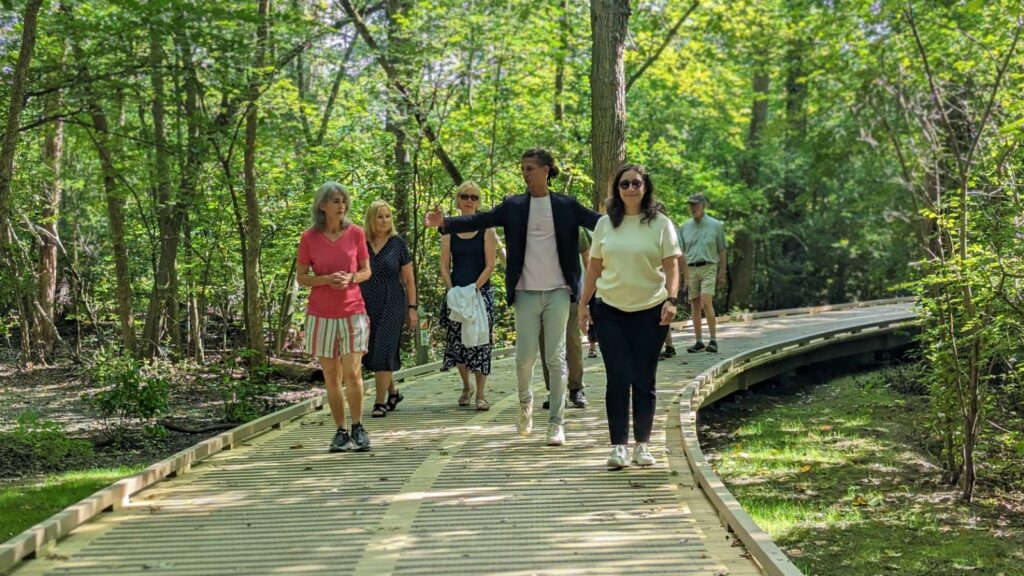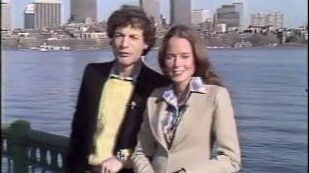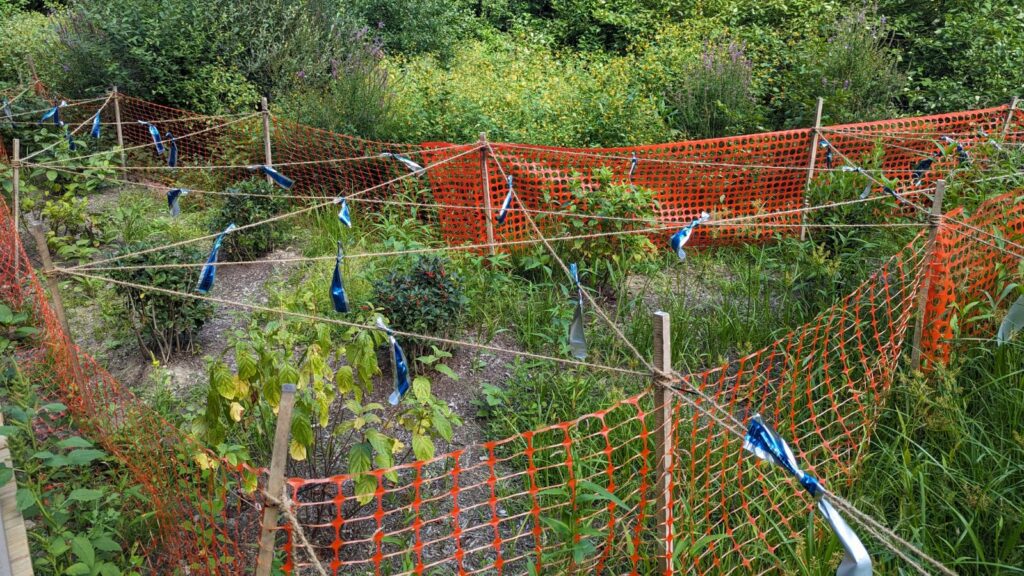SenderWalk1
Mayor Ruthanne Fuller cuts the ribbon at the Marty Sender Riverwalk on Aug. 28, with local officials and volunteers (and a dog named Auggie) by her side. Photo by Bryan McGonigle
PHOTO Mayor Ruthanne Fuller cuts the ribbon at the Marty Sender Riverwalk on Aug. 28, with local officials and volunteers (and a dog named Auggie) by her side. Photo by Bryan McGonigle
Marty Sender—Newton resident and longtime iconic Boston broadcast journalist—loved nature.
Before he died in 2000, Sender worked tirelessly to improve the land and water in Newton. Now the city he called home is honoring him with that love, in the form of a restoration project that has transformed part of Auburndale along the Charles River into a walkable paradise.
On Aug. 28, that vision was realized and celebrated as Mayor Ruthanne Fuller cut the ribbon at the newly completed Marty Sender Riverwalk.
“We’re dealing with flooding, we’re dealing with climate change, we’re dealing with invasives [plants], and this project is going to fun. We’re going to really be able to get down to the Charles and enjoy it,” Fuller said after thanking the many people involved in getting the massive project to its finish line. “But it’s simultaneously dealing with so many of these mammoth issues facing our planet and us here in Newton. And it’s just lovely that we can keep at it and keep making a difference.”
Before, that section of greenway at Auburndale Park and the Cove across from the Islington area peninsula was prone to flooding. And with that flooding came mud, more mosquitoes, invasive plants and more unwanted environmental mess.
Now, there’s a raised wooden pathway that allows for nature to do its thing underneath while hosts of new shrubs and groundcover soak up water.
There’s a whole area of newly planted native bushes between that walkway and the adjacent baseball field, meaning families can gather to watch games without sinking into mosquito-infested mud, which is always a plus.

The project came together with help from local officials, state and federal grants and lots of volunteers.
Fuller said she was able to use $300,000 in ARPA (American Rescue Plan Act) funds to help the project. The Massachusetts Trails Program gave the project another $340,000.
Sender’s wife, Jane, moved away from Newton a few years ago but returned for the ribbon-cutting ceremony.
She recalled how, when she and Marty first moved to Kingswood Road in 1988, they saw people in the water pulling fanwort, an invasive water plant species, with their bare hands. A neighbor suggested they help. Marty had an injured hand, so Jane Sender was introduced to the neighborhood by pulling fanwort from the bottom of the cove.

But the fanwort issue got them thinking about the health of Newton’s environment and ecosystems.
“At the time, Marty was a reporter with Channel 7, so he couldn’t get involved in any public issues,” she said. “But when he retired, he got on the board of the Charles River Watershed Association and the Newton Conservators and started getting very active with respect to the cove.”
Marty used the cove as a place to talk with neighbors—he canoed around in it during the warm seasons and ice skated on it during winter—and the fanwort was a hindrance to those things, Jane continued. So, he used his contacts in state government to get state funding for the first sonar treatment for the cove to clear it up.
That process is still ongoing, but Jane remarked how clear the water looks now compared to when she and Marty lived there.
“He was someone who, like all of you, really believed in just jumping in as a private citizen, working with public officials and getting things done,” Jane said.
Words and photos can’t really describe the transformation or the beauty of the area, so you’ll have to head over and enjoy a stroll for yourself.
